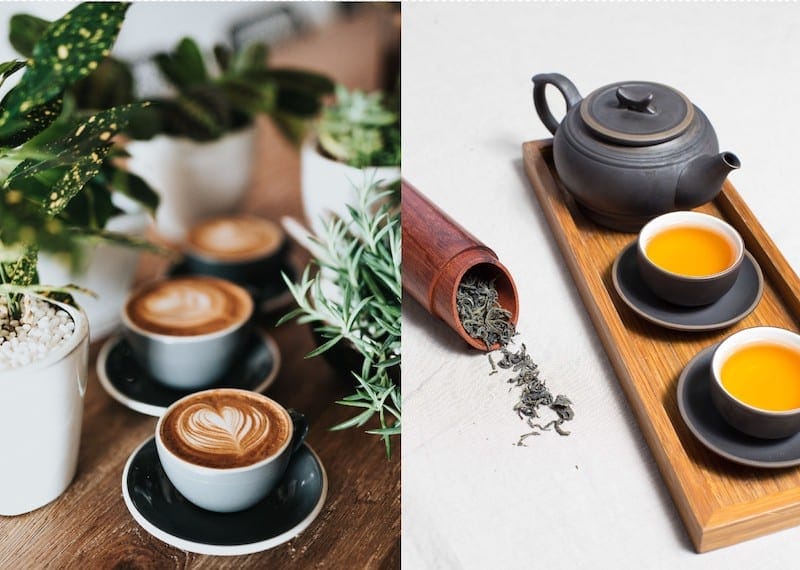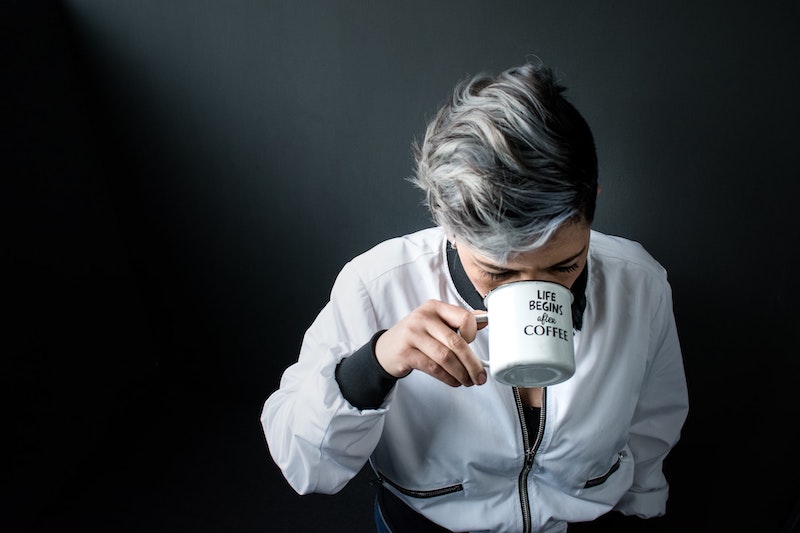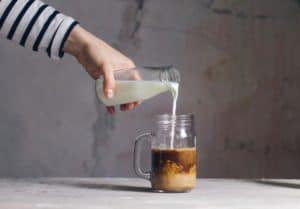
A majority of Americans start their days with a cup of coffee, while across the pond, the Brits can’t live without black tea. Both of these drinks are made with hot water and plant pieces — coffee beans and tea leaves — but the flavor and caffeine content is very different! So does coffee or black tea have more caffeine, and which drink is healthier?
We’re taking a close look at black tea and coffee. These drinks have more in common than you might think!

What is Caffeine?
Caffeine is a central nervous system stimulant that occurs naturally in plants like cacao, coffee, and tea. It can make you feel more alert and focused, helping you wake up or stay awake longer.

Caffeine takes one to two hours to reach its full effect on your body. It also has a half-life of about five hours, which means that after five hours, your body has metabolized half of the caffeine. That is why you generally want to avoid drinking caffeinated beverages too late in the day. If you drink a strong cup of coffee or black tea too late in the day, you may have a hard time sleeping.
SEE ALSO: How to Fall Asleep After Drinking Coffee (Tips & Tricks)
Caffeine in Coffee
The average cup of black coffee has about 95 milligrams of caffeine, and a shot of espresso has about 64 milligrams. The FDA recommends drinking 400 milligrams or less per day, so you can safely drink up to four cups of coffee or six shots of espresso in one day.
RELATED: Try our handy caffeine calculator!

What about decaf coffee?
Though decaf coffee gets a bad rap, there are quite a few delicious brands on the market these days. Coffee can be decaffeinated through various methods, including the Swiss Water Process and chemical solvents. Without processing, coffee beans all have caffeine in them. There is no naturally-occurring decaf coffee, but you may enjoy the health benefits anyway!
Want to try delicious decaf coffee beans? You can get 50% off our favorite brand, Lifeboost Decaf!
Caffeine in Black Tea
How much caffeine is there in black tea? A typical cup of black tea has about 47 milligrams of caffeine, or about half as much as coffee. That means you can drink a lot more tea before you encounter any negative caffeine symptoms!
Black tea is made from the leaves of a plant called Camellia sinensis. All four major types of tea are made from the same plant! The difference between white, green, oolong, and black tea comes down to processing. To make black tea, you allow the plant leaves to oxidize, which turns them from green to black.

Are there non-caffeinated teas?
Many types of tea don’t contain caffeine. For example, herbal tea, which is made with different herbs and leaves, is typically caffeine-free. If you are looking to avoid caffeine entirely, check the label on your favorite tea — and steer clear of black tea. That includes chai!
Black Tea vs Coffee: The Bottom Line
So which caffeinated drink should you choose? As coffee lovers, we always recommend a delicious cup of joe. But if you’re looking for a lighter caffeine boost, a cup of black tea may be just the thing. And don’t forget that both drinks have decaffeinated options!
Looking for more?
















